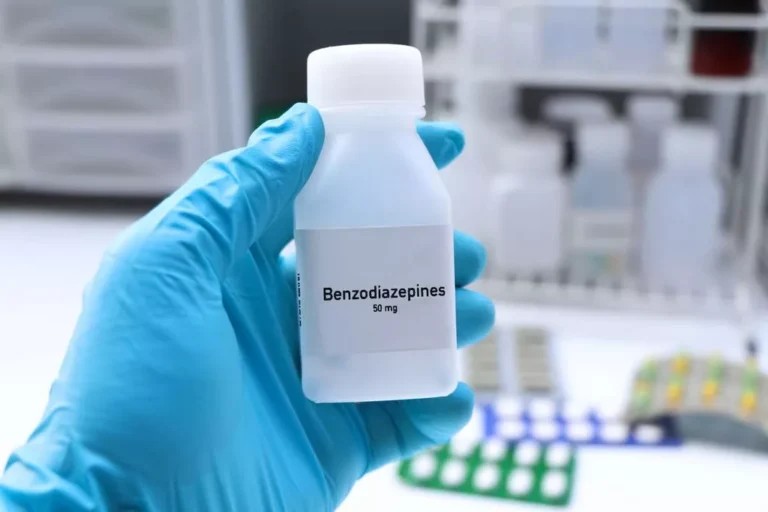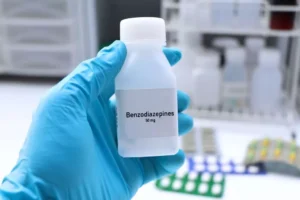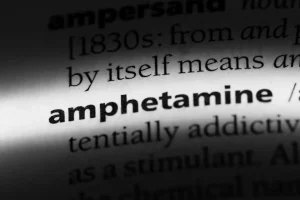
Over time, a number of secondary effects can happen in people with FAS, particularly in those who aren’t treated for the condition in Substance abuse childhood. These are called secondary effects because they’re not part of FAS itself. Instead, these secondary effects happen as a result of having FAS. Fetal alcohol syndrome happens when a person drinks any alcohol during pregnancy, including wine, beer, hard ciders and “hard liquor”. One reason alcohol is dangerous during pregnancy is that it’s passed through your bloodstream to the fetus through the umbilical cord. The baby doesn’t metabolize (break down) alcohol in the same way an adult does – it stays in the body for a longer period of time.

CDC controversy
A newborn may get medicine to help with alcohol withdrawal. These primary and secondary disabilities affect an individual’s ability to take care of themselves and live alone. Secondary disabilities are those which are not visible at birth, but may occur later in life. Some research suggests that a pregnant person’s environment may also play a role. Living in stressful, isolated, or adverse conditions may increase the chance of FAS.
- But drinking alcohol any time during pregnancy can be harmful.
- There’s no known safe amount of alcohol to drink during pregnancy, and there’s no type of alcohol that is safe.
- If your child is diagnosed with an FASD, the diagnosis will be for a specific condition under the umbrella of FASDs, as listed above.
- FASD may present in childhood or early adulthood with mild social or intellectual concerns, or it can present with birth defects and growth problems during pregnancy.
- Also, not all people who drink while pregnant feel comfortable talking to their healthcare provider.
Risk factors
And other disorders, such as ADHD (attention-deficit/hyperactivity disorder) and Williams syndrome, have some symptoms like FAS. The more alcohol you drink during pregnancy, the greater the chance of problems in your baby. There’s no known safe amount of alcohol to drink during pregnancy, and there’s no type of alcohol that fetal alcohol syndrome is safe. An early diagnosis and appropriate interventions and support result in more positive outcomes for people with the disorder. Besides affecting the fetus, alcohol can induce the risk of spontaneous abortions, preterm delivery, placental abruption, stillbirth, and amnionitis. The symptoms of FASDs may resemble other medical conditions or problems.
- Public school systems can also offer support to children with FASDs.
- Not all infants exposed to alcohol in utero will have detectable FASD or pregnancy complications.
- It can also be comforting to know what’s behind your or a loved one’s behaviour and feelings.
- We also discuss how people can prevent FAS and when to see a doctor.
- If you suspect your child has fetal alcohol syndrome, talk to your doctor or other healthcare professional as soon as possible.
Physical development issues
- A healthcare professional specializing in FAS can help determine the cause.
- FAS symptoms include distinctive facial features, lower-than-average height and weight, and problems with brain and nervous system development.
- Damage from alcohol can happen at any point during pregnancy.
- When evaluating a patient for fetal alcohol spectrum disorders, each of the five conditions that comprise fetal alcohol spectrum disorders has specific diagnostic criteria.
- However, diagnosis of fetal alcohol spectrum disorders can be difficult.
- The variance seen in outcomes of alcohol consumption during pregnancy is poorly understood.
Fetal alcohol syndrome (FAS) is the most serious type of FASD. People with fetal alcohol syndrome have facial abnormalities, including wide-set and narrow eyes, growth problems and nervous system abnormalities. There is no “safe” amount of alcohol you can drink during pregnancy. And there is no time during pregnancy when it’s considered safe to drink alcohol, either. A child is considered to have partial fetal alcohol syndrome when they have been exposed to alcohol in the womb and have some but not all of the traits linked to FAS.

Risks of Drinking While Pregnant
Fetal alcohol syndrome (FAS) is a collection of growth, mental, and physical problems that may occur in a baby when a mother drinks alcohol during pregnancy. These include medicines to help with some symptoms, medical care for health problems, behavior and education therapy, and parent training. It should include close monitoring, follow-ups, and changes when needed. Some of the most severe problems happen when a pregnant person drinks in the first trimester, when the baby’s brain starts to develop. The brain is still developing then, and even moderate amounts of alcohol can disturb this process. After delivery, you should continue to pay attention to when you drink alcohol if you’re breastfeeding your baby.

Lifespan
And as the baby continues to develop in the womb, it’s damaging to drink at any time during pregnancy. There is no known safe amount or type of alcohol that a woman can consume while she is pregnant. Whether it is red wine or beer, alcohol has the same effect on a fetus.

NewYork-Presbyterian wants you and your unborn child to receive the highest level of care during your pregnancy. If you think you might have an alcohol abuse problem, talk with your doctor before getting pregnant. Seek help from one of NewYork Presbyterian’s alcoholic treatment centers located throughout the New York metropolitan area. Consider total abstinence from alcohol during childbearing years, especially if you have unprotected sex.
Health Care Providers

In the womb, a baby doesn’t have a fully developed liver that can process or break down alcohol, so it can easily get to and damage the baby’s organs. A diagnosis can help people get relevant and targeted services and supports, including financial support where available. It can also be comforting to know what’s behind your or a loved one’s behaviour and feelings. As mentioned previously, complications range in quality and severity. Sequelae https://ecosoberhouse.com/article/do-you-genuinely-like-the-feeling-of-being-drunk/ include perturbations to affect regulation and cognition, as well as to physical appearance manifested via pathognomonic anomalies. Recent studies have estimated that one to five percent of first-grade children in the United States are affected with FASD.
Fetal Alcohol Spectrum Disorders
Drinking alcohol during pregnancy can cause the child to have disabilities related to behavior, learning and thinking, and physical development. The symptoms of fetal alcohol syndrome vary from child to child but are lifelong. The spectrum can vary from person to person and can depend on the degree of prenatal alcohol exposure. There are no exact statistics of how many people have fetal alcohol spectrum disorder (FASD).